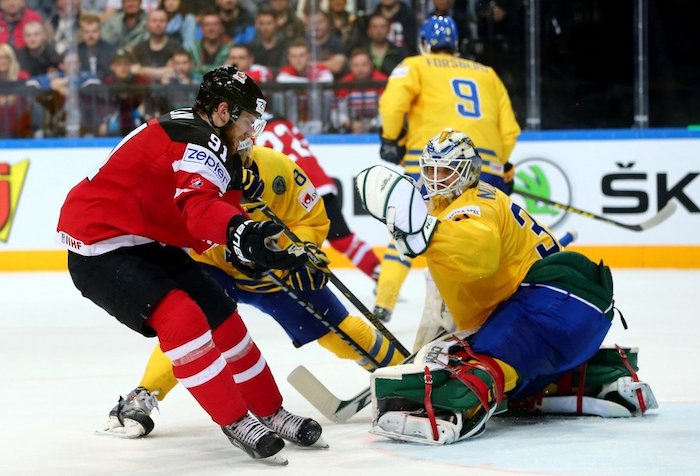Also Interesting
5 Ways Online Gaming Impacts the Economy

The online gaming industry, including video games and online gambling, has significantly
influenced the global economy, showcasing remarkable growth and expansion. In recent years,
this industry has become a major source of entertainment for people across the globe and has
made substantial economic contributions through various channels.
The gaming market is forecasted to reach an impressive size of USD 272.86 billion by 2024, with projections suggesting it will grow to USD 426.02 billion by 2029, marking a compound annual growth rate (CAGR) of 9.32% during this period.
Concurrently, the online gambling market is expected to expand from USD 93.26 billion in 2024
to USD 153.21 billion by 2029, growing at a CAGR of 10.44%. These figures underscore the
industry’s lucrative nature and its significant role in the global economy.
The Asia-Pacific region, North America, and Europe are key players in this growth, with each area contributing uniquely to the industry’s expansion. The online gaming market alone is poised to increase by USD 75.2 billion between 2023 and 2028.
This growth is attributed to factors such as the rising popularity of e-sports, strategic partnerships, and the quick adoption of online games.
Furthermore, the video game sector has grown substantially and is expected to reach a market
value of $321 billion by 2026. Increased internet penetration, technological advancements, and
the growing acceptance of gaming as a mainstream form of entertainment fuel this expansion.
Job Creation and Employment Opportunities
The online gaming industry is a significant job creator, offering many employment opportunities
globally. Companies involved in online gaming, from software development firms to customer
support and cybersecurity, constantly seek talent to support their growth.
The industry’s expansion has created jobs in areas such as software development, game design, customer service, and cybersecurity. For example, the American Gaming Association highlights that the gaming industry supports nearly 1.8 million jobs in the U.S., underlining its role as a dynamic job creator.
Revenue Generation and Taxes
Online gaming, particularly online gambling, is a major revenue generator. Significant revenue
streams are created through subscriptions, in-game purchases, and betting activities.
Taxes levied on these revenues are a crucial source of funding for national and local governments, supporting public services and infrastructure projects. The gaming industry has contributed $328.6 billion to the U.S. economy and generated $52.7 billion in tax revenues.
The online gambling market in Canada has seen considerable growth, with slots dominating
revenue generation and projections indicating a continuous increase in user engagement and
spending.
Boosting Related Industries
The online gaming sector is symbiotic with related industries such as software development,
hardware manufacturing, and digital marketing. Software development, in particular, is witnessing a transformative phase, with advancements in AI and machine learning leading the charge.
These technologies are being harnessed to create more sophisticated, engaging, and personalized gaming experiences, necessitating a broad spectrum of development tools and platforms.
The surge in innovation propels the need for skilled developers who can navigate the intricacies of AI integration, cloud computing, and cybersecurity, ensuring games are not only immersive but also secure and accessible across diverse platforms.
Similarly, the hardware manufacturing industry is adapting to meet the demands of an ever-
evolving gaming landscape. For example, the push towards cloud gaming and streaming services underscores the need for high-performance servers that can handle extensive data loads without compromising speed or quality.
Moreover, the seamless gaming experience that players now expect has placed a premium on
reliable internet connections and sophisticated security protocols, prompting significant investments in infrastructure development.
Innovation and Technology Development
The demand for immersive online gaming experiences drives technological innovation. Advancements in virtual reality, artificial intelligence are just a few examples of how the gaming
industry propels innovation.
These technologies enhance the gaming experience and contribute to the broader tech industry’s growth. Companies such as White Hat Studios and Stakelogic are at the forefront of integrating innovative technologies into their offerings, further pushing the boundaries of what’s possible in online gaming.
Moreover, generative AI is revolutionizing the gaming experience by creating dynamic content
that adapts to players’ actions, offering unprecedented levels of personalization and interaction.
Competitive multiplayer mobile gaming continues to surge in popularity, fueled by the global
eSports phenomenon and the widespread adoption of games like PUBG Mobile.
International Trade and Investment Opportunities
These technological advancements in online gaming foster a global ecosystem of trade and
investment. The rise of cloud gaming, blockchain, and the Metaverse attracts gamers worldwide
and opens up new markets for developers and investors looking to capitalize on the growing
digital economy.
Cross-platform gaming expands the potential user base, breaking down barriers between different gaming communities and creating more unified gaming experiences.
Integrating cutting-edge technologies such as AI, blockchain, and cloud computing enhances the gaming experience. It drives economic value, making the sector attractive for investors and
entrepreneurs.

Conclusion
Online gaming, including online gambling, plays a significant role in the global economy, contributing to job creation, revenue generation, and technological innovation. Its impact is
evident in the support it provides to related industries, the advancement of technology, and the
promotion of international economic connectivity.
As the industry continues to grow, it offers a promising avenue for further economic development, underscoring the importance of its integration into the global economy in a responsible and sustainable manner.
The exploration of the economic impacts of online gaming reveals an industry that is not only a
source of entertainment but also a significant economic driver. Its contributions to job creation,
revenue generation, technological innovation, and international trade highlight its importance in
the global economic landscape.
As the industry evolves, it will continue offering new economic development and innovation
opportunities.
Also Interesting
PlayAlberta’s Struggle to Compete With International Platforms

Even though PlayAlberta is the only legal online gambling platform in the province, approximately 55% of Albertans access offshore online casino websites and sports betting sites. Multiple reports indicate that PlayAlberta only captures 25% to 45% of the Alberta iGaming market, and as a result, billions of dollars are flowing to international operators rather than remaining in provincial hands.
International platforms have gained a loyal following of Albertan players by providing what government-backed PlayAlberta often cannot. According to Esports Insider Canada insights, these offshore sites typically offer players more game variety, better bonus structures, and faster withdrawal processing.
The competitive disparity is so large that earlier this year, the legislature passed Bill 48, also known as the iGaming Alberta Act, to try to bring offshore operators under a regulated regime by opening up Alberta’s market to private operators. At a press conference before the bill was tabled, Minister Nally was frank enough to recognize the reality: online gambling grows in the province regardless of legislation, and if Bill 48 is defeated, that will not prevent offshore gambling from expanding.
Alberta lawmakers are taking action towards an Ontario-style iGaming market by 2026. Consequently, players still choose international sites, rather than the government-sponsored alternative. The offshore platforms are not a novelty. They have been working in digital shadows for years, creating loyalty through offerings that PlayAlberta can’t compete with. Despite attempts to create a friendly gaming environment in Alberta, the regulated platform has not managed to attract its target audience. It was supposed to be something safer, more home-grown. On the other hand, many players find it limited, constraining, or ultimately simply not as competitive as that which exists elsewhere.
Offshore casinos keep libraries of at least thousands of games. Their online gambling platforms feature popular online slots, table games, live dealer titles, and specialty software. In collaboration with leading studios like Games Global, Pragmatic Play, and Evolution Gaming, they bring to Alberta content that Albertans already know and love. PlayAlberta’s library, on the other hand, is still modest.
While it provides a decent balance of slots, table games, and lottery-style selections, its library is limited, and updates are infrequent. Additionally, for players who prefer novelty or the latest releases, the controlled platform is just too restrictive. This is one of PlayAlberta’s greatest shortcomings, pushing players to offshore platforms where they can get scale, variety, and content updates regularly.
The bonus imbalance worsens PlayAlberta’s competitive deficit. The provincial site provides welcoming bonuses, cashbacks, reload promotions, and exclusive offers to bettors for Alberta sports teams. Offshore platforms offer the same range, but in much larger quantities. New users of PlayAlberta who deposit $10 get $50 in bonus cash.
A player who deposits the same amount at an average offshore site can get a matching bonus of up to 100% of the deposit amount up to $2,000, with the addition of 200 bonus spins. The difference is stark, as pointed out above. PlayAlberta has asserted that responsible and sustainable play is important. However, against larger bonuses, the decision of many players is clear.
PlayAlberta recently unveiled a new, more colourful logo to emphasize its homegrown advantage. Its mobile app has been updated with a new interface design, including cleaner navigation and improved performance across additional betting verticals. AGLC VP of Gaming Dan Keene explained that PlayAlberta is the Albertans’ entertainment destination, adding that in order to improve overall player experience, app functionality will keep expanding. He was excited about how the brand has grown and developed over five years into a platform that celebrates the unique identity of Alberta.
However, these enhancements are not really competitive when compared to major offshore sites that invest heavily in mobile-first design. Their apps are lightweight, offer smooth in-game transitions, and come with customization options. PlayAlberta’s interface is functional, and supports digital wallet integration as well as responsible play functions. However, its customization and interactive features are still basic compared to other competitors worldwide.
Also Interesting
Historic Return: NHL Confirms Player Participation in 2026 Winter Olympics

The NHL has officially confirmed the inclusion of its players in the 2026 Winter Olympics in Milan-Cortina, Italy, following a 12-year absence that left the fans craving the excitement of the real best-on-best international hockey. The announcement is a historical event, as it goes back to the Olympic arena where the hockey powerhouse nations of the world will eventually be faced with their complete NHL prowess.
The ruling has not only shaken the hockey fraternity but also the sports fraternity at large, as it has generated early predictions, betting debates, and revived rivalries. Also, such large websites as GGBet, where many fans place their bets, have also been on the lookout, offering odds and analysis on which country will win gold.
A Long-Awaited Comeback
Since the 2014 Olympics in Sochi, NHL players have not been given the chance to play in the Olympics. The spectators have since witnessed world championships that, even though competitive, did not have the superstar appeal of Olympic hockey. This decision of the league in selecting the players to Milan-Cortina is a recreation of the desires of the NHL and the international arena to become one again.
The 2026 tournament will be the one offering the excitement, talent, and passion that will be fitting among NHL players. These legends, such as Sidney Crosby, Connor McDavid, Auston Matthews, and Leon Draisaitl, could play with young players like Jack Hughes and Tim Stützle – that sort of experience and youth.
The Tournament Breakdown
The event in hockey will take place between 11 and 22 February 2026, and the team count will be 12, which will be divided into three groups:
● A: Canada, Switzerland, Czechia, France.
● B: Italy, Finland, Sweden, Slovakia.
● C: Latvia, Denmark, the US, Germany.
The teams will be playing three pre-elimination games followed by play-off, which will lead to the final match, and a gold medal will be given on February 22.
Slovakia is going to play against Finland, and Sweden against Italy. Team USA starts playing on February 12, and Team Canada plays against Czechia. The matches would all be at either the Santagiulia Ice Hockey Arena or the Rho Ice Hockey Arena, both in Milan.
Why This Moment Matters
It is not only entertainment but a legacy that the NHL has gone back to the Olympics. To the league, it reestablishes itself as the world body in professional hockey. To players, it makes their lifelong dream of playing in the national team a reality in the biggest sporting arena. And to fans, it revives the magic that made such moments as Crosby scoring his Golden Goal in Vancouver 2010 unforgettable.
Nevertheless, beyond the ice, such a move will make the NHL more global and strengthen the new generation of sportsmen. The Games of 2026 are expected to achieve a huge global following, whereby fans in North America, Europe, and other continents will be reached.
Looking Ahead
As the opening of February 2026 approaches, the teams are plotting, investigating, and preparing to contest a tournament that numerous people are calling the most competitive Olympic hockey tournament to date. The already existing dream is Canada vs. USA, Finland vs. Sweden, and national pride will clash against the NHL-type talent.
Final Thoughts
It is not a sports story, but a cultural phenomenon because NHL players are returning to the 2026 Winter Olympics. It is an embodiment of unity, excellence, and the unadulterated affection of hockey. The fans all around the world are eagerly awaiting the days when the puck will drop in Milan and they will be watching a show that has been 12 years in the making.
The tournament will not be remembered for the successive gold medals, but rather for the first face-off to the final gold medal celebration. It can be either your country that wins; it could be just watching the magic, but in any case, one thing is certain: the Olympics are back, and the game has never been this alive.
-

 COVID-1910 hours ago
COVID-1910 hours agoNew report warns Ottawa’s ‘nudge’ unit erodes democracy and public trust
-

 Great Reset2 days ago
Great Reset2 days agoEXCLUSIVE: A Provincial RCMP Veterans’ Association IS TARGETING VETERANS with Euthanasia
-

 Health2 days ago
Health2 days agoDisabled Canadians petition Parliament to reverse MAiD for non-terminal conditions
-

 Daily Caller2 days ago
Daily Caller2 days agoSpreading Sedition? Media Defends Democrats Calling On Soldiers And Officers To Defy Chain Of Command
-

 Crime1 day ago
Crime1 day agoHow Global Organized Crime Took Root In Canada
-

 Digital ID2 days ago
Digital ID2 days agoLeslyn Lewis urges fellow MPs to oppose Liberal push for mandatory digital IDs
-

 Business2 days ago
Business2 days agoThe Payout Path For Indigenous Claims Is Now National Policy
-

 Energy1 day ago
Energy1 day agoExpanding Canadian energy production could help lower global emissions





